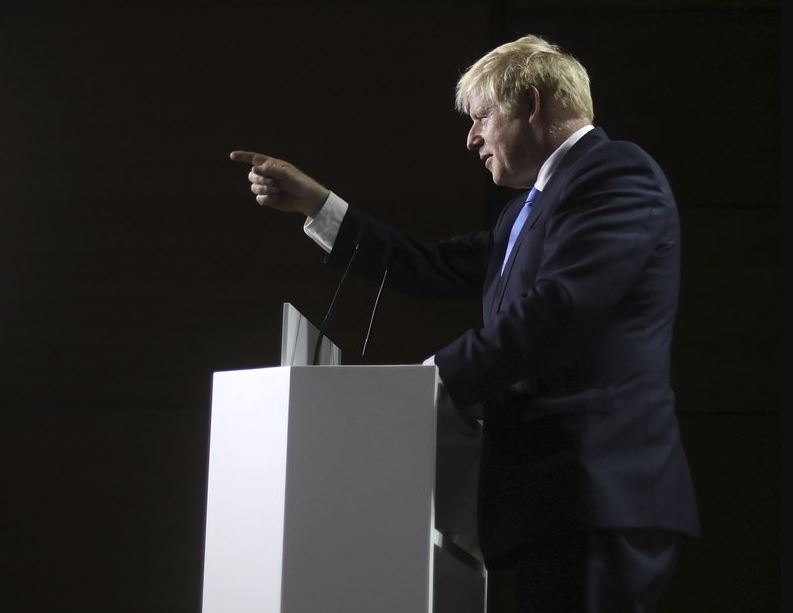
(Photo: AP)
LONDON, Feb. 29 (Xinhua) -- Britain is set to publish its negotiating objectives for its trade talks with the United States next week amid rising concerns over the National Health Service (NHS) and food standards, British Department for International Trade has said.
The document is expected to set out Britain's "red lines" on some controversial issues, including whether TO open NHS, the country's publicly funded healthcare system, to US private companies.
There are also rising concerns in Britain that the trade deal will lower barriers to controversial US exports such as chlorine-washed chicken, which was banned in the European Union (EU) in 1997 over food safety concerns but is considered "safe" in the United States.
"We must not allow those standards to be undermined by imports of goods which would be illegal for our farmers to produce here," said the National Farmers Union (NFU) President Minette Batters earlier this week, calling for an import ban on chlorinated chicken.
However, British Prime Minister Boris Johnson has repeatedly expressed his ambition for a "massive" trade deal with the United States. He criticized "America bashers" who take a "hysterical" attitude towards US food earlier this month, according the local media.
British International Trade Secretary Liz Truss met US Trade Representative Robert Lighthizer in London Thursday. The two sides reiterated their commitment to get on with negotiating a free trade agreement (FTA).
"The UK stands ready to negotiate a highly ambitious FTA with the US and will publish UK's negotiation objectives very soon," said Truss.
Johnson government's plan to kick off the trade negotiations with the United States soon after the beginning of its talks with the EU scheduled on Monday, is also seen as an attempt to put further pressure on Brussels, which has questioned Britain's goal to seek a "Canada-Style" comprehensive FTA.
According to the policy paper revealed by British government Thursday, Britain will plan for an "orderly exit" from the EU if not enough progress is made with Brussels in the negotiations by June.
Despite the strong political will to forge a trade deal, observers are not as optimistic about the prospects for the UK-US trade talks. In some British experts' view, a summary of specific negotiating objectives on the US-UK trade agreement published by the US government in February 2019 shows it is "demanding concessions but offering little in return".
When Britain is outside the EU, the country might have declining voice on the negotiation table with countries like the United States, argued Peter Holmes, fellow of the UK Trade Policy Observatory, an independent group that analyses trade policy proposals for Britain.
Tim Bale, professor of politics at Queen Mary University of London and deputy director at UK in a Changing Europe, also doubted that the two countries could secure a trade deal in the near future, given the "massive imbalance" in power between the two countries.
"The UK get some sort of sweet heart deal from (US President Donald) Trump," he said, but trade deals are "about the maths not the chemistry".


